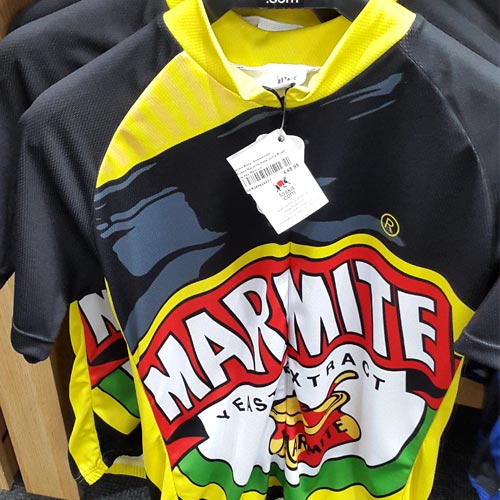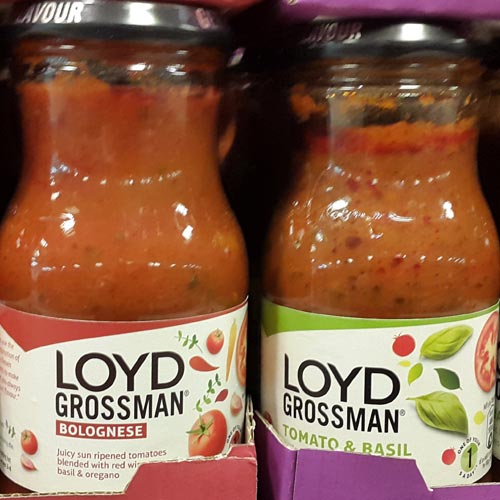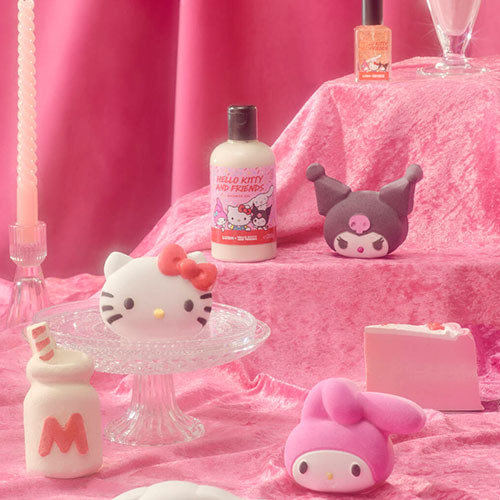This week, Ian Downes looks at good examples of diversity in the licensing business.
I called in on the Action Bikes shop in Charing Cross earlier this week – one of a ‘chain’ of independent bike shops. My main reason for visiting wasn’t to buy a bike – although if you are looking for a commuter bike you could do a lot worse than visit Action Bikes – it is a well managed retailer with expert staff.
The reason I called in to check on progress of Foska’s cyclewear range. Foska have been developing cyclewear for over ten years and a core part of their range features licences.
The company and category are good examples of how licensing can be quite diverse but also the rationale for selling a licence isn’t always about the financial value of deals – the ‘size of the prize’ does not always have to be measured in cash. Foska’s first licence was for Marmite – they developed a cycle shirt with Marmite branding on the front and on the reverse the slogan Hate Jams. This shirt is still a core part of their range some 10 years later.
I am sure it has made a reasonable return financially for Unilever and Foska but it has also been a fantastic PR tool for them being visible ‘on the street’ and being a talked about product.

It was also the first Marmite licensed product I believe so it helped give the brand owners confidence in the licensing process. I work with Foska on The Beano and we have just added an allover comic print t-shirt to their range.
They choose licences carefully with other brands including A-Z maps and a plethora of drink related brands like London Pride beer. Foska’s links with Action Bikes, social media activity and attendance at consumer shows give them a great insight into consumers – this informs their licensing decisions.
Scimitar Sports are also now active in this sector with licences like Spongebob – this shows that they is good sense in licensors and agents looking to diversify and find new applications for licensing.
Interestingly other hobbyist sports like golf have been reasonably fertile ground for licensing with companies developing character golf head covers for example. There may well be other opportunities for licensing companies out there in the hobby and sport sector – Foska themselves diversified into running vests for example and also produce licensed drinks bottles for cycling and running.

Rather like Foska’s story there are a number of licensing success stories that seem to go unnoticed – this may well be by choice -many good examples of ‘hidden licensing’ can be found in the FMCG aisles in supermarkets.
A couple of strong examples include the hugely successful Loyd Grossman range of cooking sauces and ingredients. Recently the brand has added bread products such as Naan breads to their range. All of the products seem to be produced under licence by a range of companies, but the brand is presented in a very united way and looks strong on shelf.
A further good example is the Cadbury food range which includes microwaveable desserts from Premier Foods. These ranges and others such as Jamie Oliver’s food range are great examples of licensing in product development and brand management terms.
These kind of products require a different management style and take longer to nurture but show that licensing can add value and create opportunities in a range of categories.
It is easy to think of licensing in narrow terms sometimes with a lot of focus on children’s products, but as a quick walk down a few FMCG aisles shows there is more to licensing than that.
Ian Downes runs Start Licensing, an independent brand licensing agency. His Twitter handle is @startlicensing – he would welcome your suggestions for what to look out for.































